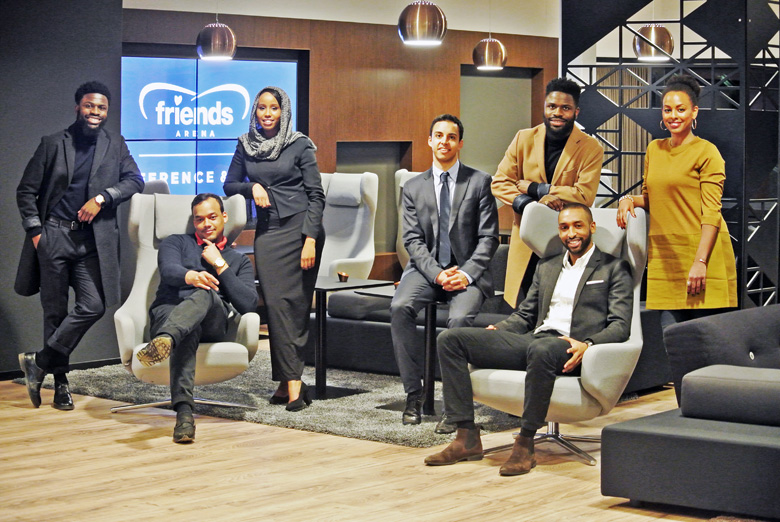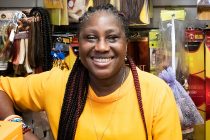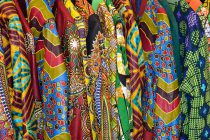Krull had a sit-down with Amin Maaz, an industrious Afro-Swedish entrepreneur who runs several companies. He gave us insight into his businesses; addressed dealing with racism and marginalization as a Swede of African descent; and shared lessons he’s learnt along his entrepreneurial journey. Not only did Amin Maaz beat the odds by excelling business-wise, he is also among the ranks of relatively few Afro-Swedish business owners.
Amin, thanks for your time. Please tell us a little about yourself?
My name is Amin Maaz. I am of Sudanese descent, born and raised in the south of Sweden in a town called Lund, near Malmö. My first job after graduating high school was working as a full- time cleaner at Lund hospital. Then I moved to Stockholm to work as a salesman. That’s how my journey commenced.
What inspired you to become the successful entrepreneur you are today?
While working as a salesman, I noticed that I never seemed to finish in first place in my sales team, even though I was the hardest working person on the team. This ignited a spark in me to strive for more; there was this constant thirst for knowledge that needed to be quenched. The psychological aspect of sales captivated me. Therefore, I decided to take a course in psychology, just so that I could get to the next level.
I started work as a salesman for Friends Arena selling box lounges to big companies. After a year of working there, Friends decided to renovate the box lounges. I could have continued working there but decided instead to work on other projects. A friend had just launched his new company and convinced me to work with him; he needed help with the administrative duties and with making the company grow. After a few years of partnership, the firm flourished, expanded and was highly lucrative. This boosted my motivation and encouraged me to venture into other projects of my own.
One is a company called Printogram that I started while maintaining a full-time job. It’s an app connected to Instagram, which lets you get your Instagram photos printed out as real photos and sent to your home.
I’ve also built an IT platform that allows Real Estate Agents to gather all of their purchases in one place.
Today Lagardere Sports commissions my firm, on a consultancy basis, where I help them with Partnerships and Sponsor deals. I also run several other companies.
What have some of your experiences been, as an Afro-Swede growing up in Sweden and how did they mold you?
Having grown up in a small town that was mainstream white, it was very easy to fall victim to racism. I remember being constantly berated and subjected to racial slurs at a very tender age. I was referred to as an ”ape” by my schoolmates; called a ‘n*****’ on the street, to mention a few. I have this very vivid memory. I was in the 8th grade and had shown up late for school. As I made my way to my class, this female teacher turns around, gives me a stern look and tells me: ‘I don’t know how you behaved at school in Africa, but here in Sweden punctuality is a must.’
Even back then, as a child, it felt morally wrong and I could not quite understand the cruelty. This gradually affected me and I dealt with it through aggression and developed a confrontational attitude for most of my teenage years. Later I channeled these feelings of frustration into sports, mainly football, which I excelled in. I transformed into an overachiever. My way of getting revenge was to exceed everyone’s expectations and be exceptional in whatever I did. There was no room for failure. That way, they would not have an excuse to criticize me and use my skin color as a target.
Do you not find it exhausting to constantly have to prove your worth?
Well it’s either that or you let them mentally and psychologically break you. Mental strength is vital.
Indeed. So, despite your tremendous success, you still deal with racism both subtle and blatant. How do you manage to handle it?
I don’t spend a lot of time dwelling on it. I’ve learnt to become immune to it over the years. I have somewhat acquired an invisible thick skin. I try to stay positive and instead focus on the tasks ahead and what I can do to accomplish them.
What advice would you give to young upcoming Afro-Swedish entrepreneurs?
The most important part is to believe in yourself and to visualize it. It does not matter what you set your sights on, as long as you wholeheartedly believe you can and will do it. Put in the effort, nothing comes easy. Especially being an Afro-Swede. You are expected to work twice as hard. Use that prejudice to your advantage, let it be your motivation.
Last but not least Amin, what does the future look like for you?
I have projects that I’m looking into and some that already are in the works. The Virtual Realty 360 is one of the projects I’m most looking forward to, if all goes well. It’s basically an artificial environment that is created with software that makes the user think and feel like it’s a real environment.
Thank you very much for letting us interview you and good luck with your future endeavors.
Thank you.
– Sarah A Ismail
This is the first in a series of interviews Krull magazine has conducted with a group of young Afro-Swedish entrepreneurs, inviting them to share their knowledge of what it takes to create and run a business in Scandinavia.
Photos: Sarah A Ismail / Julia Jane Persson







1 Comments